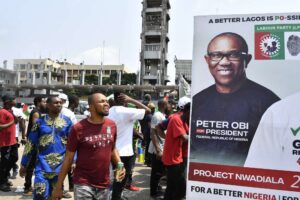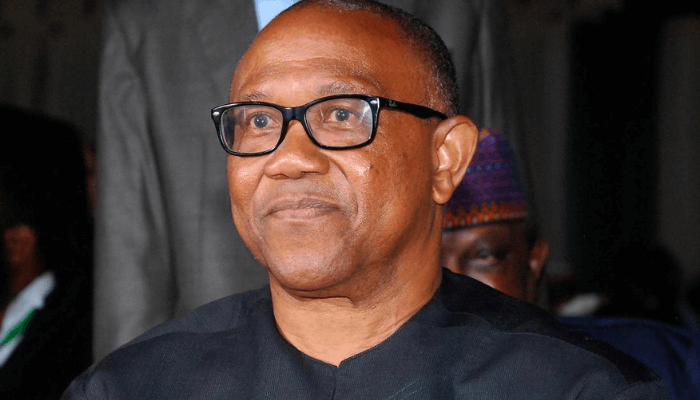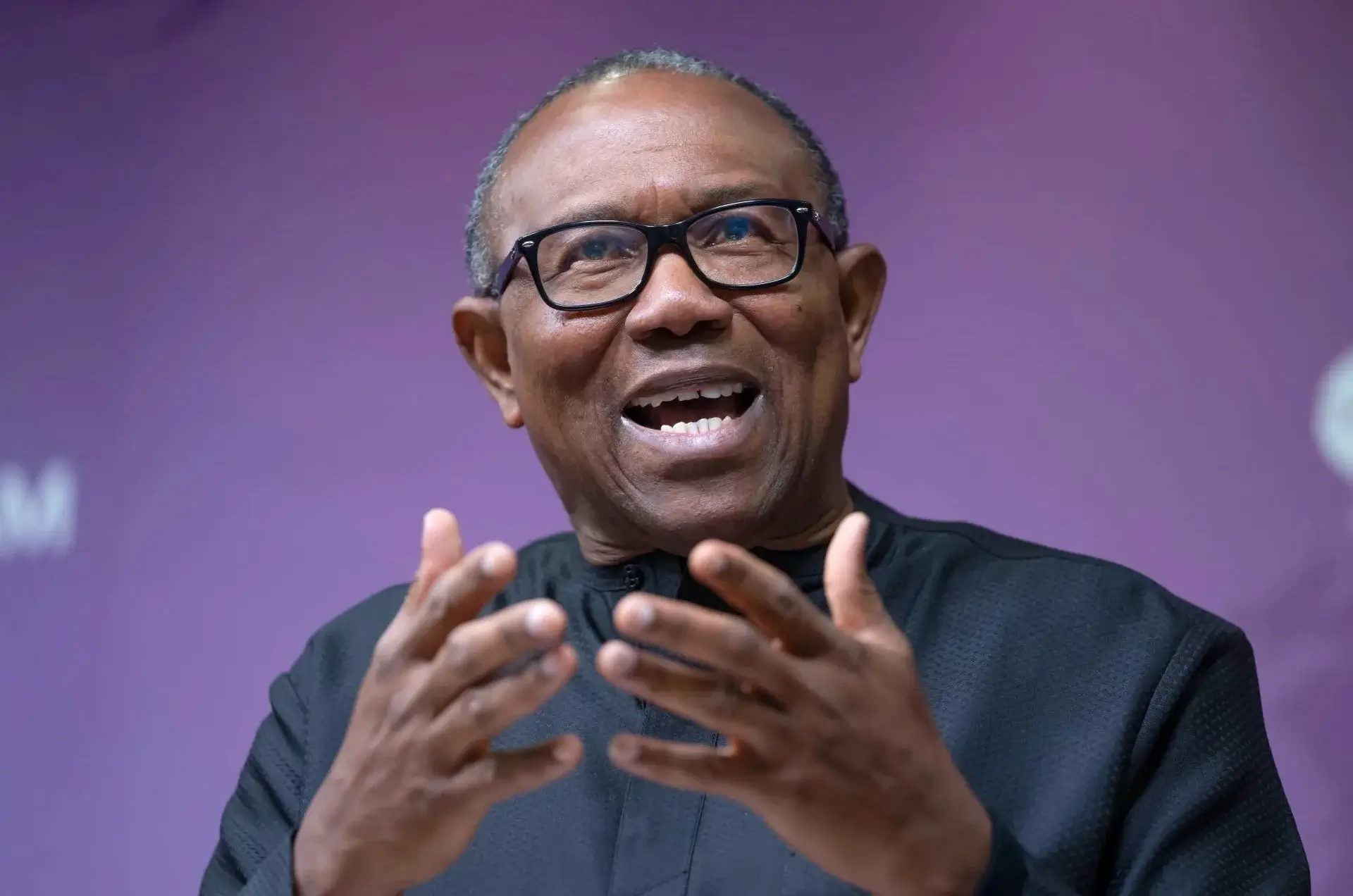Politics
Nigeria’s unexpected presidential challenger, Peter Obi

The youngest of the three front-runners for Nigeria’s top position in this weekend’s presidential election is former governor Peter Obi, who is 61 years old.
Obi, a wealthy businessman from the Anambra state of southeast Nigeria, has emerged as an unexpectedly potent force in the race with a message that he is the only candidate providing genuine change.
He opposes former vice president Atiku Abubakar, 76, of the main opposition People’s Democratic Party, and former Lagos governor Bola Ahmed Tinubu, 70, both of the ruling All Progressives Congress (APC) (PDP).
Since the restoration of democracy in 1999, Tinubu and Abubakar have been the two political workhorses in Nigeria.
Tinubu, a Muslim from southwest Nigeria, served as governor of Lagos for two terms and has long been known as a political kingmaker.

Abubakar, a Muslim from the north, served as vice president from 1999 to 2007 and is currently running for president for the sixth time.
For Obi’s followers, his heritage serves as the foundation for what makes him unique. Obi is a 61-year-old Christian from the Igbo-speaking region and a candidate for the Labour Party.
Obi’s term as governor of the Anambra state, where he had a reputation for thrift and integrity, serves as a benchmark for his accountability in public service.
That is viewed by his fans as a change from the pervasive corruption that has tarnished the country’s public life, making him popular with younger Nigerians who make up a significant share of registered voters.
In contemporary Nigeria, where the PDP and APC have dominated politics since the end of military government in 1999, Obi’s rising popularity and social media appeal are unique.
For the first time, despite the Labour Party’s absence of a national organization, Obi is mobilizing the younger electorate, who are primarily in their 30s, into a well-liked movement known as the “Obidients.”
He entered the Labour Party last year after running unsuccessfully for vice president of the PDP in 2019.
According to Obi and his supporters, Nigerians should use this election to vote out traditional politicians who should retire.
At his campaign rallies, Obi frequently exclaims, “It’s time to take your country back.”
Experts predict a three-horse battle between Tinubu, Abubakar, and Obi on Saturday’s ballot.
At an Obi rally held last week in a stadium in Lagos, food vendor Lorita Unegbu remarked, “We need a change, and with Obi, we will achieve that change.”
Several polls predict that Obi will win, but his detractors claim that his appeal is limited to young Nigerians and those on social media, many of whom lack voter IDs.
They contend that the former governor’s party lacks the geographic diversity and political organization necessary to win the popular vote, particularly in the predominantly Muslim north.
According to Nigerian election rules, a candidate must receive the most votes in addition to at least 25% of the votes cast in 24 of the nation’s 36 states plus Abuja, the federal capital.
The governor of northern Kaduna state for the ruling party, Nasir El-Rufai, claimed that Obi’s popularity on social media “cannot translate” into votes for him to win the election.
Additionally, Obi is accused of putting public cash in a family business and failing to disclose his assets and accounts in offshore jurisdictions. He denies these accusations.
His detractors often bring up the actions of the illegal Indigenous People of Biafra (IPOB) separatist group, which aims to give the ethnic Igbo people of southeast Nigeria their own independent homeland.
The police and election offices have allegedly been attacked by IPOB, and critics claim Obi hasn’t done enough to denounce the organization.
Notwithstanding the reservations, Yusuf Datti Baba-Ahmed, a northern Muslim and Obi’s running mate, have consistently performed well at rallies, even in the north.
Obi has drawn sizable crowds even in Tinubu’s southwest heartland, garnering support from the sizable Igbo trader and resident community, particularly in Lagos.
Former president Olusegun Obasanjo and fellow Yoruba leader Ayo Adebanjo officially supported Obi’s campaign, arguing that now that other ethnic groups had had their shot at the presidency, it is the Igbo’s turn.




